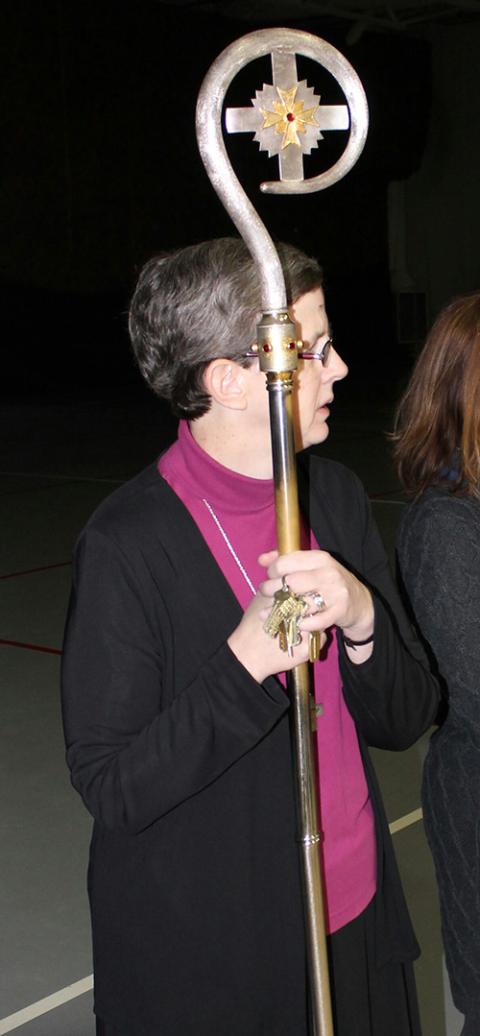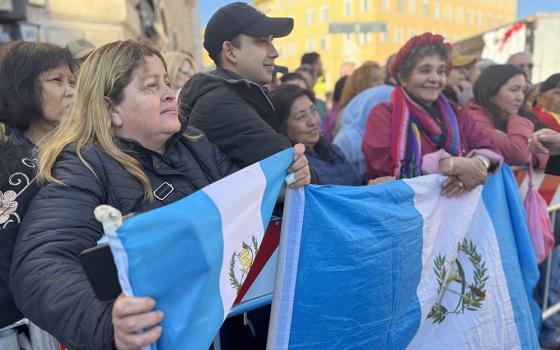
(Unsplash/Grant Whitty)
For the first time since middle school I am not a liturgical minister. For roughly 75% of Masses I attend, I have had a role beyond "person in the pew." My roles include cantor, choir member, eucharistic minister, sacristan, planner, presider for non-eucharistic services, and even master of ceremonies for a variety of bishops. COVID-19 closed all churches in my diocese in mid-March 2020, and my ministry roles abruptly stopped.
While some churches have reopened with strict protocols including preregistration, assigned seating for contact tracing and limited capacity, many others have not. Church leaders and city health department personnel are still at odds about reopening plans; I have chosen to follow the direction of health experts.
Thankfully, using the gifts of technology, there are many options for liturgy. A local television station broadcasts Sunday Mass; several parishes livestream or record and post liturgies; a friend presides via Facebook Live. Virtual liturgy is not new. Television stations have broadcast prerecorded Sunday Masses for years, and national networks have often streamed major feast day liturgies from — among other places — St. Peter's in Rome. I have prayed with those liturgies at various times, usually when weather has prevented me from joining my local parish community.
The Facebook Mass group shares greetings via chat before Mass begins. We often comment on the homily in real time (Father comments or clarifies after Mass, he doesn't monitor the chat while presiding) and we bring prayers of petition that become part of our greetings the following week (e.g., "How is 'x' doing?"). Our only connection to each other is the presider, or someone who knows the presider. While we have never met each other, over these many months we have become a community in many ways just like we would be in our individual parishes.

Sr. Jane Marie Bradish acts as "unofficial master of ceremonies" during an Ash Wednesday Mass. This was the end of Mass, after Communion, waiting for the final blessing, with the crosier ready for the bishop to come claim it. (Angela Reilly/Courtesy of Jane Marie Bradish)
While I enjoy my varied liturgical ministries, being without them has brought many new insights. After months of virtual liturgy, I've learned a lot. I'm able to "pause and rewind" if I find myself distracted or want to listen again (e.g., "What was just said?"). For the record, I've never fast-forwarded. I'm not calling for an overthrow or revision of liturgy. Probably much to the amusement of my liturgy teacher, I am noting what has given me pause for the first time.
The Gloria — "Glory to God in the highest and on earth peace to people of goodwill." With ongoing wars, racial injustice and discrimination, and corruption on so many levels, it seems to me it's the people who are not of goodwill that we should also be praying for.
The Nicene Creed — "He will come again in glory." God isn't absent so the idea of coming again or returning doesn't make sense to me.
The Lord's Prayer — "Lead us not into temptation." There is no way God would lead us into temptation. This phrase sounds like a trap being set, I don't see God doing that.
During the annual week of prayer for Christian Unity, my parish used to do a pulpit exchange with neighboring pastors from other denominations. That stopped abruptly when our new pastor didn't approve. For that weekend we used to sing Marty Haugen's "All Are Welcome," but when the pulpit exchange stopped it became clear to me that all are not welcome.
If "you" are not like "us" you are most certainly not welcome unless and until "you" become one of "us." It's dangerously close to the old teaching of Catholics being the only ones who are saved. Even among members not all are welcome: LGBTQ or divorced people come to mind.
The rite of baptism speaks of removing the stain of original sin. While I have an understanding of that concept, it seems an odd way to welcome new members — especially infants.
All of us have had family, friends and community members die during the pandemic. I'm grateful that my province has long had the ability to record and post our funeral liturgies. At the beginning of the liturgy there is a simple prayer I've never noticed before — and now that I have it bothers me: "May she now enter into eternal life, a promise that is made to all who are faithful." Even though I know the intended context (vowed religious) I wonder: faithful to who or what, and how does that get measured, and who determines faithfulness? At a time of grief, I find this prayer cold rather than comforting.
Christmas brought the traditional gathering hymn "O Come All Ye Faithful." I've sung it in various voice parts and languages for years. This past Christmas I couldn't get past the opening line — who exactly is faithful, and to what/whom, and who gets to decide faithfulness? By the end of the Christmas season, I still had no answers, I did however change the words to include the unfaithful. I'm in no way making light of faithfulness, I think I'm being honest by admitting faithfulness ebbs and flows depending on life circumstances. As long as we are "in-process" and trying to be faithful, I'm fine having "you" come along with "me" as we work to be consistently faithful.
Advertisement
Lest you think I'm noticing only the prayers that bother me, let me point out at the sign of peace — "the peace of the Lord be with you always." Not only when you attend Mass, not if you "behave", but always. Peace is in very short supply in our world. This simple, almost overlooked line brings comfort.
Scripture offers many words of comfort and challenge as well, sometimes both at the same time. I've been paying special attention to the Psalms, beautiful poems of praise and lament and thanksgiving and complaint. For me they are the most human parts of Scripture, heartfelt communication with God.
Someday I hope to return to my liturgical ministries. For now, I'm enjoying and growing as I continue to pray virtually. I'm sure there will be more times I pause and rewind as I say, "We're praying for WHAT?"






